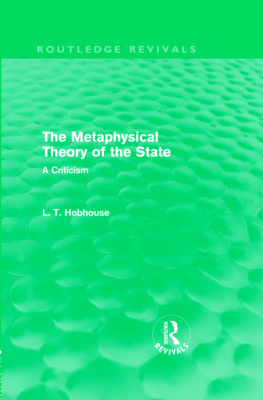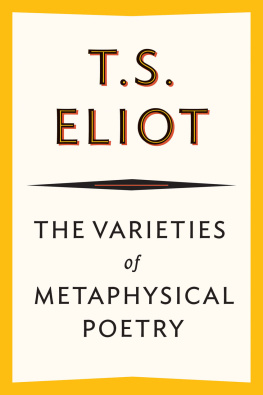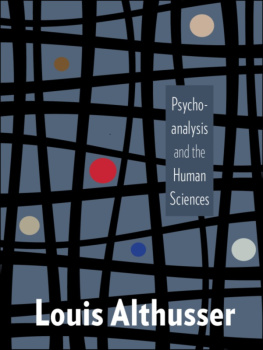Hobhouse - The Metaphysical Theory of the State
Here you can read online Hobhouse - The Metaphysical Theory of the State full text of the book (entire story) in english for free. Download pdf and epub, get meaning, cover and reviews about this ebook. year: 2009, publisher: Routledge, genre: Science. Description of the work, (preface) as well as reviews are available. Best literature library LitArk.com created for fans of good reading and offers a wide selection of genres:
Romance novel
Science fiction
Adventure
Detective
Science
History
Home and family
Prose
Art
Politics
Computer
Non-fiction
Religion
Business
Children
Humor
Choose a favorite category and find really read worthwhile books. Enjoy immersion in the world of imagination, feel the emotions of the characters or learn something new for yourself, make an fascinating discovery.
The Metaphysical Theory of the State: summary, description and annotation
We offer to read an annotation, description, summary or preface (depends on what the author of the book "The Metaphysical Theory of the State" wrote himself). If you haven't found the necessary information about the book — write in the comments, we will try to find it.
The Metaphysical Theory of the State — read online for free the complete book (whole text) full work
Below is the text of the book, divided by pages. System saving the place of the last page read, allows you to conveniently read the book "The Metaphysical Theory of the State" online for free, without having to search again every time where you left off. Put a bookmark, and you can go to the page where you finished reading at any time.
Font size:
Interval:
Bookmark:
Routledge Revivals
The Metaphysical Theory of the State
Originally published in 1918, this enduring work by renowned sociologist and Liberal politician Leonard Trelawny Hobhouse encompasses a series of five key lectures, first delivered at the London School of Economics in the autumn of 1917. Outlining Hobhouses theories on social investigation, freedom, law and the will of the state, this edition revives an important work, which has long been unavailable.
A Criticism
L.T.Hobhouse

First published in 1918
by George Allen & Unwin Ltd
This edition first published in 2009 by Routledge
2 Park Square, Milton Park, Abingdon, Oxon, OX14 4RN
Simultaneously published in the USA and Canada
by Routledge
270 Madison Avenue, New York, NY 10016
Routledge is an imprint of the Taylor & Francis Group, an informa business
This edition published in the Taylor & Francis e-Library, 2009.
To purchase your own copy of this or any of Taylor & Francis or Routledges collection of thousands of eBooks please go to www.eBookstore.tandf.co.uk.
1918 L.T.Hobhouse
All rights reserved. No part of this book may be reprinted or reproduced or utilised in any form or by any electronic, mechanical, or other means, now known or hereafter invented, including photocopying and recording, or in any information storage or retrieval system, without permission in writing from the publishers.
Publishers Note
The publisher has gone to great lengths to ensure the quality of this reprint but points out that some imperfections in the original copies may be apparent.
Disclaimer
The publisher has made every effort to trace copyright holders and welcomes correspondence from those they have been unable to contact.
ISBN13: 978-1-135-22807-1 ePub ISBN
ISBN 13: 978-0-415-55275-2 (hbk)
ISBN 13: 978-0-203-87127-0 (ebk)
ISBN 10: 0-415-55275-3 (hbk)
ISBN 10: 0-203-87127-8 (ebk)
THE METAPHYSICAL THEORY of the STATE
BY THE SAME AUTHOR
SOCIAL DEVELOPMENT: ITS NATURE AND CONDITIONS
THE RATIONAL GOOD: A STUDY IN THE LOGIC OF PRACTICE
ELEMENTS OF SOCIAL JUSTICE
BY J.A.HOBSON AND MORRIS GINSBERG
L.T.HOBHOUSE: HIS LIFE AND WORK
A Criticism
By
L.T.HOBHOUSE
London
GEORGE ALLEN & UNWIN LTD
Ruskin House Museum Street
FIRST PUBLISHED IN 1918
SECOND IMPRESSION 1922
THIRD IMPRESSION 1926
FOURTH IMPRESSION 1938
FIFTH IMPRESSION 1951
This book is copyright under the Berne Convention No portion may be reproduced by any process withoutwritten permission. Inquiries should be addressed to the publishers
TO LIEUTENANT R.O.HOBHOUSE, R.A.F
MY DEAR OLIVER,
If you can carry your memory across the abyss which separates us all from July 1914, you will remember some hours which we spent reading Kant together in a cool Highgate garden in those summer days of peace. I think by way of relaxation we sometimes laid aside Kant, took up Herodotus, and felt ourselves for a moment in the morning of the world. But it is of Kant that I remind you, because three years later I was reading his great successor in the same garden in the same summer weather, but not with you. One morning as I sat there annotating Hegels theory of freedom, jarring sounds broke in upon the summer stillness. We were well accustomed to the noises of our strange new world that summer. Daily if the air was still we heard, as some one said, the thud of guns across the northern sea, and murmur of innumerable planes. But this morning it was soon clear that something more was on foot. Gunfire, at first distant, grew rapidly nearer, and soon broke out from the northern heights hard by. The familiar drone of the British aeroplanes was pierced by the whining of the Gothas. High above, machine guns barked in sharp staccato and distant thuds announced the fall of bombs. Presently three white specks could be seen dimly through the light haze overhead, and we watched their course from the field. The raid was soon over. The three specks drifted away towards the east, the gunfire died down, the whining faded away, and below the hill the great city picked up its dead. The familiar sounds resumed their sway, the small birds chirruped from the shrubs, and the distant murmur of the traffic told of a world going steadily on its accustomed course.
As I went back to my Hegel my first mood was one of self-satire. Was this a time for theorizing or destroying theories, when the world was tumbling about our ears? My second thoughts ran otherwise. To each man the tools and weapons that he can best use. In the bombing of London I had just witnessed the visible and tangible outcome of a false and wicked doctrine, the foundations of which lay, as I believe, in the book before me. To combat this doctrine effectively is to take such part in the fight as the physical disabilities of middle age allow. Hegel himself carried the proof-sheets of his first work to the printer through streets crowded with fugitives from the field of Jena. With that work began the most penetrating and subtle of all the intellectual influences which have sapped the rational humanitarianism of the eighteenth and nineteenth centuries, and in the Hegelian theory of the god-state all that I had witnessed lay implicit. You may meet his Gothas in mid air, and may the full power of a just cause be with you. I must be content with more pedestrian methods. But to make the world a safe place for democracy, the weapons of the spirit are as necessary as those of the flesh. You have described to me times when your lofty world is peaceable enoughabove the Canal in the dawn, when all the desert lies gray and still before the first sunbeam sets the air moving, or alone in the blueness, cut off by a bank of cloud from earth. When at such times the mind works freely and you think over the meaning of the great contest, I should like to think that you carried with you some ideas from this volume to your heights. At any rate you will bear with you the sense that we are together as of old, in that in our different ways we are both fighters in one great cause.
Your affectionate father,
L.T.HOBHOUSE.
THE substance of this volume was given in a course of lectures at the London School of Economics in the autumn of 1917.
I have to thank my colleague Dr. A.Wolf for reading the MS. and making several useful emendations of detail.
THE METAPHYSICAL THEORY OF THE STATE
THE OBJECTS OF SOCIAL INVESTIGATION
People naturally begin to think about social questions when they find that there is something going wrong in social life. Just as in the physical body it is the ailment that interests us, while the healthy processes go on without our being aware of them, so a society in which everything is working smoothly and in accordance with the accepted opinion of what is right and proper raises no question for its own members. We are first conscious of digestion when we are aware of indigestion, and we begin to think about law and government when we feel law to be oppressive or see that government is making mistakes. Thus the starting-point of social inquiry is the point at which we are moved by a wrong which we desire to set right, or, perhaps at a slightly higher remove, by a lack which we wish to make good. But from this starting-point reflection advances to a fuller and more general conception of society. If we begin by criticizing some particular injustice, we are led on to discuss what justice is. Beginning with some special social disorder, we are forced to examine the nature of social order and the purposes for which society exists. The social theory which we reach on these lines is a theory of ends, values, purposes, which leads us up to Ethics or Moral Philosophy, to questions of the rights and duties of man, and the means by which institutions of society may be made to conform thereto. The principles of Ethics are supreme, or, as they have been called, architectonic. They apply to man in all relations and to life on all sides. They guide, or are meant to guide, the personal life of man no less than his collective and political activities. They provide the standard by which all human relations are to be judged. When, therefore, we study social and political institutions with a view to ascertaining their value or justification, our inquiry is in reality a branch of Ethics. Our results rest in the end on the application of principles of well-being to the social organization of man. This is one perfectly legitimate method of social inquiry, and as involving an analysis of common experience, leading up to or down from a theory of ends or values, it is appropriately called Social Philosophy.
Font size:
Interval:
Bookmark:
Similar books «The Metaphysical Theory of the State»
Look at similar books to The Metaphysical Theory of the State. We have selected literature similar in name and meaning in the hope of providing readers with more options to find new, interesting, not yet read works.
Discussion, reviews of the book The Metaphysical Theory of the State and just readers' own opinions. Leave your comments, write what you think about the work, its meaning or the main characters. Specify what exactly you liked and what you didn't like, and why you think so.





